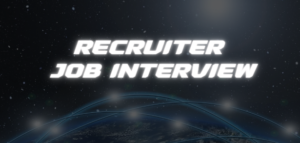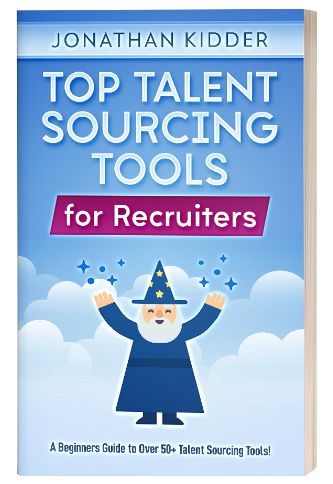
Trying to prepare for your next Recruiter job interview? It can be tough even for seasoned Recruiting professionals. From the stress and excitement of a new career move to answering the tough, extremely subject questions that HR managers like to throw out, here’s a look at some common questions and advice so you can walk in confident.
Advise for Answering Interview Questions as a Recruiter
As a recruiter, you’ve surely been on the other end of the interview table many times, but putting yourself in a candidate’s shoes can be a challenge. Here are some tips to keep in mind.
- Don’t just talk about your people skills, try to demonstrate them throughout the interview and beyond.
- Show that you’re up-to-date on the latest trends in recruiting and talk about them openly.
- Pull from your past experiences to show your interest and abilities.
- Research the company and its industry so you can speak confidently.
- Always ask questions that help further demonstrate your knowledge and interest.
Recruiter Interview Questions
As you’ve probably advised candidates in the past, it’s important to run-through some common questions and consider how you’ll answer them before you ever make it to the interview room. I recommend learning how to phrase your answers using the STAR interview method (here).
Why did you choose to become a recruiter?
Think about past experiences that led you to your decision to become a recruiter. What motivates you in your day to day work? What difference or impact do you hope to make? They’re trying to understand what drives you.
What is the most rewarding part of being a recruiter?
This question is an attempt to gauge your passion, so share it with enthusiasm. Talk about how being a recruiter relates to your values and strengths. Try to talk about past experiences to give supporting evidence.
What tactics do you use to find the best candidates?
Your answer to this question should give the interviewer a looking into one or more specific strategies you use when recruiting. They want to know how you go about finding candidates and what makes your methods more effective than all the other recruiters they’re going to interview.
You should tailor your answer to fit the requirements of the industry the company works in. For example, if they’re in the IT business, talk about how you go about verifying skills needed for various positions. Keep complex – share REAL examples how you used searching techniques (Boolean) to find candidates.
Can you write Boolean?
Come prepared to talk about boolean strings and how you use them to find candidates online. Need more examples? I wrote a Boolean cheat sheet (here).
How do you measure your efficacy and improve your strategies?
When you answer this question, think carefully. You shouldn’t boast about perfection but instead be willing to be a bit self-critical about how you could have done certain things better in the past, and then quickly transition to talking about how you plan to improve. By showing that you reflect on and learn from past experiences, you’re demonstrating your ability to adapt through change.
How do you stay on top of trends in recruiting?
There are many new developments in the field of recruiting. Are you keeping up with them? That’s exactly what they’re trying to gauge with this question, so explain how you stay ahead of the pack with new technology and techniques.
How do you use data in your work as a recruiter?
Metrics can provide critical insight into how you can better your recruiting strategy, so failing to use data is a big no-no! Talk about the type of metrics you track, like KPIs, and how you utilize them in your recruiting strategy to find the best candidates and help make every recruitment a success. I wrote a post about Recruiting metrics worth mentioning (here).
What social media practices do you think are most valuable to recruiting?
Social media is an extremely powerful recruiting tool, so you better be on top of this one. Let them know how you use social media to build employer brands and attract bright, engaging candidates. Share what specific platforms you’re on as well and how your approaches differ from one example to the next.
What makes a good job advertisement – to attract candidates?
This is a broad question, so it’s helpful to provide a general bullet list overview of the key aspects a job advertisement should tick off. Above all, you should probably focus on the importance of getting across key facts every candidate wants to know while presenting that information in a storytelling manner to engage them and help them see themselves working at the company.
What are the skills you must look for in an applicant for the {job role} position at {name of company}?
This question seeks to giveaway just how much you know about the company and the skills needed for the positions they’ll be hiring for. This question is tougher in the IT and tech worlds, where you need to understand the roles of various software and coding skills. Make sure you know the company before you walk into the interview or this one could stump you up!
How would you convince a candidate they want to work for our company?
Again, this question looks to assess your knowledge about the company, but it also gives them insight into your storytelling abilities and creativity. Think about the company’s best aspects that you want to highlight along with any initiatives or values you know they want you to instill in candidates.
How would you deal if the most desired candidate rejects your job offer?
Handling negative outcomes professionally and effectively is a big skill for recruiters to have, and this question tries to directly assess your ability to do just that. Recognize that you’d be disappointed but grateful for the candidate’s time, potentially willing to extend a wait list offer, and then move on to finding the next best candidate.
If you find a great candidate and the company can’t offer them a position right away, how would you keep them interested?
Recruiters have to consider both the company and the candidate, so this question tries to gauge how you handle balancing these two (sometimes competing) responsibilities. You should show that you are communicative and responsible by explaining some unique strategies you’d utilize to address this situation.
+ Tips from Fellow Sourcers within our community:
Bret Feig – recommends researching the team that you are interviewing with:
People You are interviewing with:
-
- Name – Title – Years at Company – Previous Companies Worked etc
- Try a google search :
- “FULL NAME” (“Current Company” OR “Previous Company” OR “Previous Company “ -site:linkedin.com
- Check Social Media [all of them] and note:
- Common Connections
- Did they speak, present, author an article or were mentioned
- What have they liked, who do they follow (applies to Linkedin/Facebook/Twitter)
Executive Leadership (Same as above but less intensive)
-
- Name – Title – Years at Company – Previous Companies Worked – (Any other Relevant Details)
- (Are their diversity issues? Do they have a Chief People/Talent/HR officer lister on their web page) ** this is actually very telling.
Here you’re looking for patterns in where they’ve come from, what schools they went to, tenure etc.
This might give you a few data-points to mention at the right times.
Erin Mathew – talk about your accomplishments!
I would say be prepared to talk about specific examples from problems you solved that you’re proud of. They can be something as simple as how you dealt with a difficult hiring manager, to how you recognized a problem in your recruiting process and improved it. I think it’s also important to convey that you are a recruiter that invests in their own professional development. If you did any independent learning or attended conferences, talk about what you learned and how you put it into practice.”
Jung Kim – focus on skills that relate to the Recruiter job.
“Juxtapose your skills and experience to the job description. For each component of the job description, think about your relevant skills and experiences, and think critically about how you want to present them. If there’s a nice to have skill or experience you do not have, be able to clearly convey you’ll be competent without it. A confident learner is a successful learner.”
 |
New Book Launching SoonMy mission is simple: Help Recruiters learn about the latest Talent Sourcing Tools on the market! |
Recommended Reading:
Amy Miller Interview Spotlight
Top Diversity Recruiting Tools to Find Talent
How to Create a Diversity Sourcing Strategy
- AI Search Will Transform Talent Sourcing Forever - January 10, 2025
- Build an AI Sourcing Assistant using ChatGPT 4 - January 10, 2025
- Top Recruiting Leaders to Follow in 2025 - January 8, 2025
